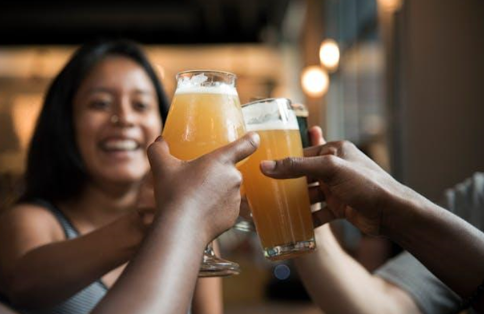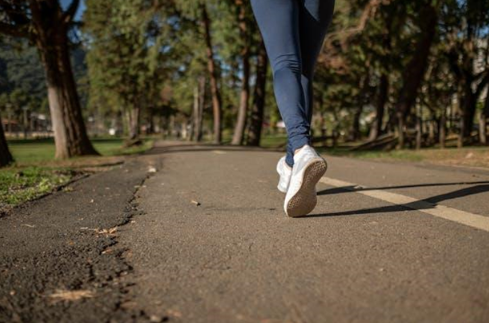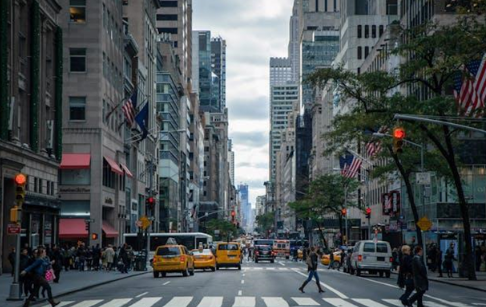Urban life pushes you to confront habits, values, and priorities more directly than expected. Crowded trains, noisy sidewalks, and overstimulated nights can either overwhelm or clarify what matters. Daily exposure to extremes—temptation, ambition, loneliness—forces deeper awareness. In this setting, growth happens not in isolation but through friction. Public spaces amplify private decisions. Every interaction, from a skipped drink at a bar to a morning jog, reinforces internal shifts. Building a sober identity here means learning to stay grounded, even when nothing around you stands still. Above all, the city teaches resilience. The city doesn’t slow down, but your focus can sharpen within it.
Public Spaces, Private Battles
City life offers endless spaces where social drinking is normalized—cafés, rooftops, bars, and even street festivals. These settings often revolve around alcohol. Choosing sobriety in such environments highlights an internal shift that few notice. Every event, gathering, or casual meet-up tests commitment and self-control. Nevertheless, these moments become training grounds for stronger boundaries. Saying no without apology becomes natural. Over time, social pressure loses power. Finding enjoyment on your terms gains more meaning. Ordering a soda or having a mocktail doesn’t mean missing out—it means choosing differently.
Additionally, it often sparks curiosity from others, offering a chance to share your values without preaching. Sobriety becomes less about restriction and more about confidence. Above all, showing up fully without numbing out is its reward. Urban social spaces will always buzz—how you move through them changes everything.

Support Systems in Concrete Networks
Large cities often offer more recovery-friendly infrastructure than smaller towns. Access to therapy, group meetings, and recovery-focused spaces is wider and more consistent. Drop-in centers, sober cafés, and fitness-based recovery groups are easier to find. Public transportation also makes these services more accessible.
The social environment tends to be more accepting of lifestyle differences. You’re less likely to face stigma for choosing sobriety. Cities with progressive attitudes toward health and community often foster deeper support. Some locations stand out for how they treat recovery, not as an exception, but as a respected path. For anyone researching supportive environments, consider exploring curated lists of cities for sober living to see which places offer cultural, social, and logistical advantages. These urban areas may provide stronger networks, less isolation, and a more stable footing for people maintaining sobriety.
Rewriting Your Narrative in a Fast-Moving Culture
Urban pace doesn’t wait. Everything moves quickly—careers, friendships, priorities. To stay grounded, you must decide who you are every day. Letting go of your old identity is not about forgetting the past. It’s about not letting it define you. To grow, you must rewrite your story with intention. Cities give you room to do that. Most people don’t know your history, which removes the pressure of expectation. Many people who struggle with compulsive habits find a way to overcome them. Specifically, 16.7% of Americans struggle with addiction but also find their way out and live a happy life. It’s not easy to build a new identity and a new life for yourself, but it’s not impossible.
New space gives you the freedom to reshape how you think, speak, and act. Building a sober identity becomes more than quitting substances—it’s about becoming someone new through steady, conscious choices. On the other hand, without direction, fast-paced living can pull you off track. Clarity matters more than speed. Recovery is not about fitting in—it’s about standing firm. Reinvention doesn’t need applause. It only needs consistency.
Daily Routines as Anchors in a Noisy World
Alarms, train schedules, and work hours may seem ordinary, but they help create structure in unpredictable environments. Repeating small tasks each day—coffee at the same spot, walking the same route—builds stability. These patterns reduce stress and offer clear checkpoints. With this in mind, routines create space to pause, reflect, and reset. Predictable habits make it easier to notice emotional changes before they spiral. Urban life is loud and fast, but steady routines help you stay centered.
Unstructured days often leave room for impulsive decisions. Setting time for movement, sleep, and food gives your mind clarity. In short, showing up consistently for yourself strengthens long-term goals—especially when practicing self-care in an urban area filled with noise and distractions. Each repeated choice reinforces your commitment to sobriety. The structure isn’t boring—it’s your defense against chaos. Daily routines don’t fix everything, but they support everything you’re trying to build.

The Role of Mindful Living in Urban Sobriety
Noise, deadlines, and overstimulation are part of daily city life. These distractions make it harder to stay grounded. Practicing mindfulness cuts through that noise. These pauses lower stress and reduce emotional overload. Another key point is that being mindful is helpful because you can spot triggers before they take over. Being aware of your reactions creates space between thought and action. In a fast environment, that space is everything. Journaling helps track patterns you might otherwise miss. Meditation helps reconnect with the body instead of reacting to every signal around you. Mindful choices add up. They give direction each day. Sobriety, especially in cities, needs conscious action. Mindful living isn’t about perfection. It’s about noticing what you’re doing and why. It supports clear thinking when distractions pile up.

The Dangers of Urban Loneliness
A packed subway or crowded café can still leave you feeling completely alone. Urban loneliness hides in plain sight. The noise and motion don’t always mean connection. In contrast, being alone in the city can sharpen focus and deepen self-understanding. Quiet moments between the chaos give space to reflect and reset. Above all, solitude becomes a tool, not a weakness. Without constant social validation, choices begin to feel more personal and meaningful. This matters deeply for anyone reshaping their habits. Learning to stand firm without approval builds emotional strength. Isolation turns into a form of clarity. Being alone doesn’t always mean being lost. Sometimes, it’s how you truly find your direction.
Isolation in Crowds is the Hidden Gift of Urban Loneliness
Building a sober identity in an urban setting demands clarity, resilience, and conscious daily choices. Cities may challenge your focus, but they also offer space to grow, redefine your habits, and live with purpose. With this in mind, each day becomes a chance to stay grounded, build confidence, and create a lifestyle that reflects who you truly are.



Comments